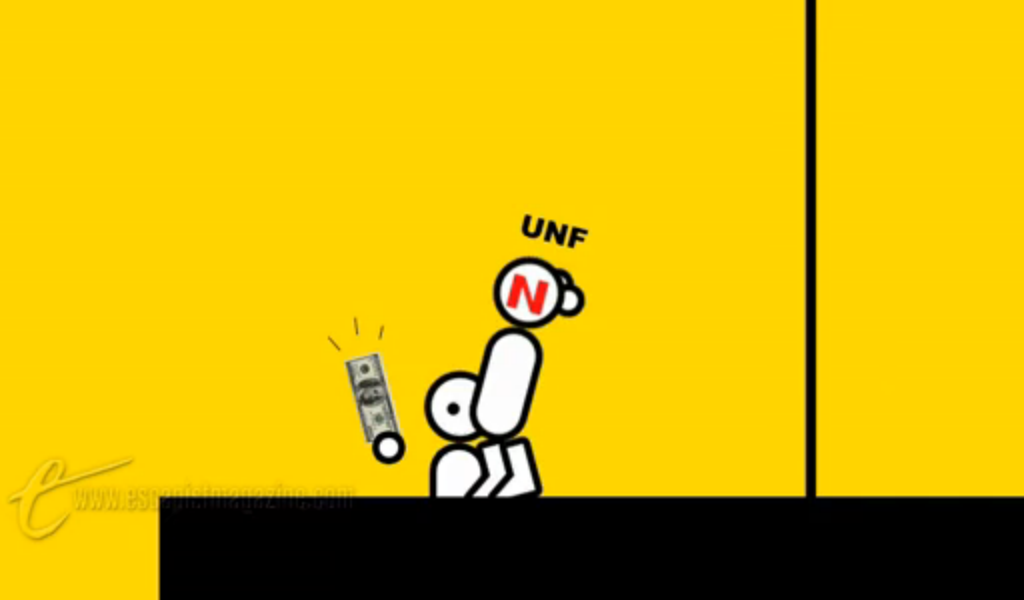I'm not kidding, and while I can see why someone wouldn't like their writing, it is fascinating you consider OMM had anything in common with today's mainstream game journalism.
I'm not surprised, if you liked OMM then you know nothing of doing your own fucking research, so here you go:
http://www.rockpapershotgun.com/2011/03/04/the-remarkable-notability-of-old-man-murray/
Let's take one of their most fucking notable articles - Death of Adventure Games - and have a look. Again, I'll assume since you hold OMM in any esteem, you're a complete shit-licking retard and can't look up things yourself and provide you with a link:
http://www.oldmanmurray.com/features/77.html
Now, let's have a look at the article:
The first page is a discussion about an article posted on another site. They get bonus points for this because they manage to link, and so are better than RPG Watch at least. Unfortunately, it's been a while and so the link doesn't link to the article any more, and I don't remember what it said. But, from what they are claiming, the article claimed two things:
- That Myst killed adventure games; and/or
- that the market was moving towards more action-focused titles over the more cerebral adventure games.
The next page is basically them giving a walkthrough of a poorly-designed puzzle from GK3: the infamous "cat mustache" puzzle. The third page is them summarizing said page, then saying that the puzzle is stupid, and that's why adventure game died. This is their entire counter-argument: either they were killed by arbitrary puzzles not based on real behavior, or that they used puzzles requiring you to figure out the logic of the designer used. They also said this, which I'll try to come back to.
Someone ought to give Jane Jensen a motion picture deal and also someone should CAT scan her brain.
Now, what's wrong with this article?
First, it's poorly researched: as it turns out, Jane Jensen didn't design the puzzle, but OMM feel perfectly fine in blaming her for it. Since I don't want to fall into the same "trust me, I know things" asspit that OMM belongs in, here's one
link and here's a quote from Jane that I found on Kotaku (which I would link to, but bros don't link bros to Kotaku):
"Honestly, that puzzle was not added by me, it was something that a producer put in. I had another solution in mind that they thought would've been too expensive. But… I didn't love it at the time, but if you think of a lot of the puzzles that Sierra and Lucasarts did, you think about Leisure Suit Larry, you know… so yes, that puzzle. The length of the sequence and the lack of hints made it really difficult. I certainly would not do anything like that today. I think it's kinda overblown."
Considering most of the puzzles in her other games (in particular GK1 and 2, but also to a lesser extent KQ6 as that's limited by the series setting that might have been decided by Roberta Williams) are very easy to figure out as most of the puzzles are very grounded in real solutions, I don't think this is too surprising from my own experience.
Second, there's basically no substantial argument: they use one example puzzle from one game as a "proof" of some point. I'm not entirely sure whether they're arguing that poorly-designed puzzles are the problem, or the requirement to figure out the creator's "logic" was the problem.
Let's suppose it's bad puzzles. Then why not list more? King's Quest 5, for example, has a couple of stinkers; why not mention those. Was it that one puzzle that caused the issue?
- If that one puzzle was all it took, then the genre must have been having other problems. One terrible game is unlikely to ever destroy a genre, and this isn't even the entire game. If it was, you'd better do a good job at dismissing all the other reasons. Unsurprisingly, this doesn't happen once. Repeating the same example doesn't actually make it an extra argument, either.
- Alternatively, if it was such a common problem, then why the hell were adventure games such a huge genre in the first place? I hate to tell you and all the other OMMers the truth about a genre, but practically every adventure game has really fucking obscure puzzles in them, going right back to Colossal Cave and Adventure and Zork. This game exists, and if you're looking for weird, unrealistic, near-illogical puzzles, then this game is basically full of them. Why didn't this kill off the genre much earlier?
If it's the creator "logic" that they have issue with, then that's not really a good argument either. Have you ever heard of
cryptic crosswords? They've been around almost 100 years now, and they haven't disappeared (they may not be as popular today, but I'll come back to that). Besides, for a long of adventure games, that's (or, at least it should be) part of the challenge: the battle of wits between the puzzle designer and the player.
Third, their rebuttal is flawed.
As far as I can tell, the Gamecenter "death of adventure" timeline goes something like this:
- The action-packed Myst introduces casual gamers to the pleasures of Tomb Raider.
- Genius adventure gamers come to the painful realization that the same equipment they use to explore the complex fantasy world of Leisure Suit Larry can also be utilized by stupid people to run Quake. Thanks to their television-atrophied attention spans, these casual gamers are mentally incapable of spending six hours trying to randomly guess at the absurd dream logic Roberta Williams has applied to the problem of getting the dungeon key out of the bluebird's nest.
- Horrified by the knowledge that somewhere someone is playing a game that is not an adventure, genius adventure gamers abandon the hobby in droves and resort to their backup source of entertainment: various combinations of Babylon 5 novels and masturbating.
1 looks reasonable, if snarky; however if you think about it from the point of view of graphic whores, then Myst and the early Tomb Raiders do have something in common (3D, whether faked or not) that a lot of adventure games weren't doing well at the time (see: KQ8 and, surprisingly missed by the "witty" OMM, GK 3). No exploration was made of any correlation between Myst and other modern games, or anything really substantiative but saying that "lol stupid other game journalists".
2 isn't even reasonable: it assumes people just stopped playing adventure games and played action games instead, which is some of what happened (certainly), but it misses the main point that
action games are easier for more people to play, and larger markets mean more money, and most computer game companies are actually companies by this point. Add in the fact that playing games was made much easier (you could run games in Windows by the time GK 3 came out in 1999, so installing and setup was a lot easier) and computers were cheaper, and it's not really surprising that a lot of "dumber" people were able to play (and buy) games.
3 I don't know what to make of, are they making fun of the argument in the original article, or making fun of gamers? If it's the former, then fair enough, and the next point applies to the original article's author(s) instead. If it's the latter, then gee: blaming gamers for being elitist or too critical isn't something I've heard of in a while.
In summary: a poorly-researched, badly-argued, terribly-supported argument filled with mostly snarky attempts at humor and copy-pasta from other sources instead of actual thought. Sure sounds a whole lot different from game journalism today. Yessiree!
I'll give them one thing: they may not have deliberately set out to do this, and just wanted to have fun poking fun at things. However, the road to hell is paved with good intentions. Surprisingly the one thing I don't really have a problem with is their writing style; I personally don't find it funny in the slightest, but that's such a subjective thing that I'm going to give it a pass. However, they've basically pushed both game journalism and games (they work at Valve now, writing for Left for Dead and the Portals, so they're partially to blame for the linearity and movie-imitation prevalent in modern games) down terrible paths, so I'm going to think incredibly little of anyone who has anything even remotely positive to say about the pair of them or any of their work.





























 I have absolutely no idea what does that mean.
I have absolutely no idea what does that mean.![Have Many Potato [2013] Codex 2013](/forums/smiles/campaign_tags/campaign_potato2013.png)
![The Year of Incline [2014] Codex 2014](/forums/smiles/campaign_tags/campaign_incline2014.png)





